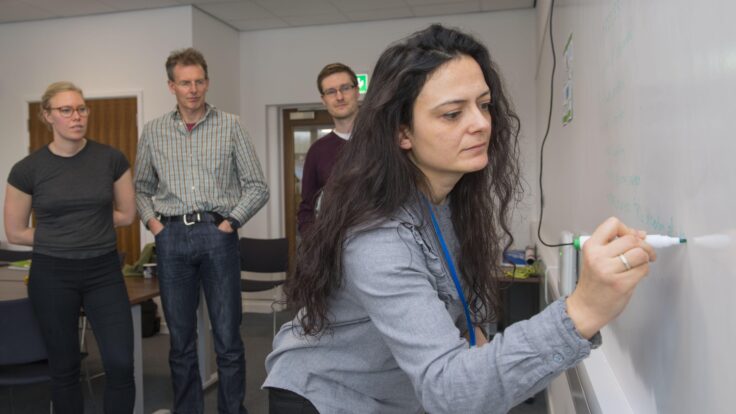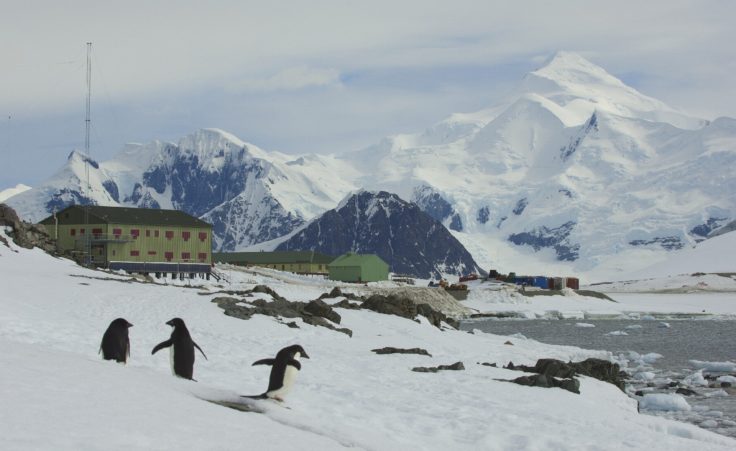Blog: A female engineer’s life at BAS
26 June, 2018
For National Women in Engineering Day, Parthena Exizidou, one of the engineers at BAS, writes about her work and why she chose engineering.
As the energy efficiency engineer at the British Antarctic Survey (BAS) my role is to help BAS minimize its impact on the environment. We aim to do this in a wide variety of ways, including reducing energy use and carbon emissions linked to the operation of research stations in Antarctica and offices in the UK, as well as the operation of BAS ships and aircraft.
In order to find ways for BAS to be greener, I collect data on how much energy we currently use in order to benchmark where we are now. I work closely with the building engineers and our Environment Office, and liaise with BAS technical advisors and contractors to develop, design and deliver solutions that meet our aspirations on energy efficiency and environmental performance.
Many people think of engineering as machines and engines, but in fact, much of my job is working with people to understand what they need in terms of energy requirements, and trying to come up with novel solutions about how to do that in a more efficient way.

The most exciting part of my role is the challenge of improving energy efficiency in Antarctica. Reducing carbon emissions from Antarctic operations means reducing environmental risks from the use of fossil fuels while reducing costs at the same time. There are many obstacles in delivering energy efficient solutions, relating to the harsh environmental conditions, the remoteness of our stations and logistic limitations.
BAS is currently part-way through a programme to modernise its Antarctic infrastructure. As we update our buildings, we need to minimise energy demands by delivering highly energy efficient buildings. The integration of energy and water systems with renewables and power management will provide an effective set of solutions to mitigate risks related to fuel transfer, storage and use. In addition, combined heat and power systems have proven to be the most robust source for meeting the electricity, heating and hot water demands when weather-dependent renewables are not generating enough.

Engineering is all about finding solutions, and in order to help BAS achieve its goal of reducing its environmental footrpint, I have produced a five-year Carbon Management Plan (CMP), setting carbon reduction goals for BAS Headquarters here in Cambridge. We have a number of initiatives to help us achieve this, including refurbishing the Aquarium and Cold rooms, focusing on more environmentally friendly solutions for the replacement of cooling and refrigeration equipment, recovering heat and improving thermal performance of the area.
In parallel I am investigating low carbon technologies and meeting with industry experts to discuss potential solutions and keeping up to date with energy and environmental regulations.
When I graduated from the Technical University of Crete with an MSc in engineering, I didn’t imagine I would be putting my skills to work in Antarctica! But in fact, engineering has taken me all over the world, and enabled me to travel from my home in Greece to Cyprus, Thailand, China and now the UK and Antarctica. It has been a great journey so far.
Engineering for me is being creative and exploring solutions to real-life problems. It’s about balancing being innovative and pragmatic, and working with other people to understand the present, challenge it and then design a better future.
